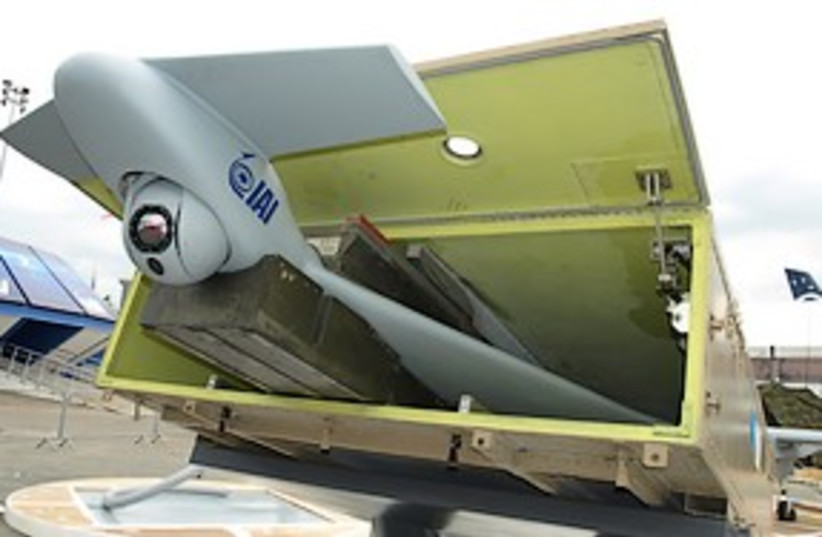Defense Minister Benny Gantz will be heading to Morocco in the coming months, as ties continue to increase with the North African kingdom after the two countries normalized relations last December.
According to foreign reports, Gantz will sign defense cooperation deals including plans to develop a domestic industry to produce loitering munitions.
The magazine Defense News and French publication Africa Intelligence reported that the two countries are currently working on the development of a project to manufacture the drones to strengthen Morocco’s air power.
The online report by Africa Intelligence said that defense giant Israel Aerospace Industries’ subsidiary BlueBird Aero Systems Ltd. has been negotiating with Moroccan teams for several months about developing a business incubator to manufacture such drones.
Rabat, the report said, became interested in the use of loitering munitions after IAI “highlighted” in a sales pitch the extensive use of the company’s Harop suicide drones by Azerbaijan during the two-month war with Armenia last year.
The Harop is a small drone that according to the company’s website, is a combination of the “capabilities of a UAV [unmanned aerial vehicle] and a lethal missile.”
Small enough to bypass enemy aircraft detection systems, the Harop – with an onboard explosive of 23 kg. – searches, identifies and loiters above targets before attacking and destroying them. If a target is not engaged, the drone will return and land itself back at base.

Measuring 2 m. in length with a wingspan of 3 m., it consists of the munition units, transportable launchers, and a mission control shelter where the operator can approve or abort attacks.
It can be launched from various platforms at sea or on land and at any angle, both vertically or horizontally. The launcher also has a fueling system to allow for the drone to be ready at all times.
Israel is considered a leading exporter of drones, and IAI has over 50 operational customers around the globe including Australia, Canada, Chile, Colombia, France, Germany, India, Mexico, Singapore and South Korea.
Israel and Morocco have had close economic, diplomatic, and military ties for years, and the two countries signed a normalization agreement in December.
According to a report in Haaretz, military ties between Israel and Morocco primarily involve intelligence cooperation and trade in arms.
In June, a Moroccan C-130 landed in Israel to take part in an international drill. It was the first time that an air-force platform belonging to the North African country landed in the Jewish State.
In January 2020, the Moroccan army received three Israeli reconnaissance drones in a deal worth $48 million. The deal between the two countries was signed in 2014 and closed via the French company Dassault Aviation.
France has been operating the Heron under the name Harfang, and according to reports in 2014, the drones acquired by Morocco were retired by the French Air Force after several years in service in Afghanistan. According to the report in Intelligence Online, the drones will be deployed to counter extremist groups and fight rebel movements in Western Sahara.
According to another report, Israel sold Morocco other military systems, including military communications and control systems (such as radar systems for fighter jets) via a third party.
Jerusalem and Rabat reestablished ties under the Abraham Accords along with the United Arab Emirates, Bahrain, and Sudan.
Foreign Minister Yair Lapid visited Morocco in August and inaugurated the country’s mission in Rabat. During his two-day visit, Lapid met with his counterpart Nasser Bourita and handed him an invitation from President Isaac Herzog for King Mohammed VI to visit Israel.
